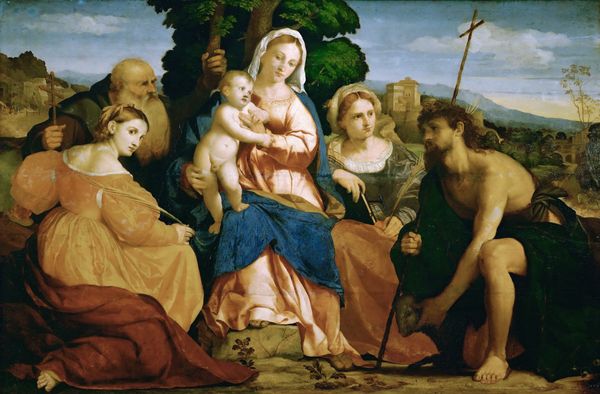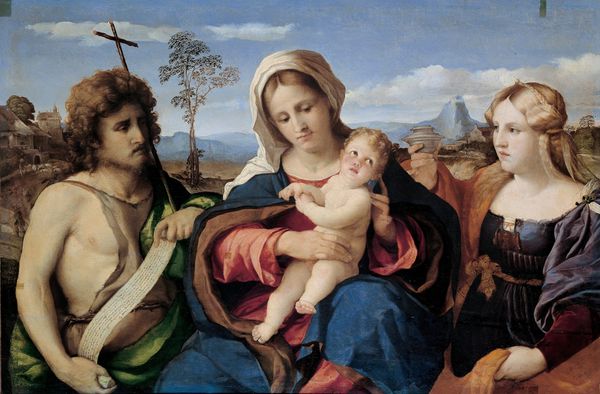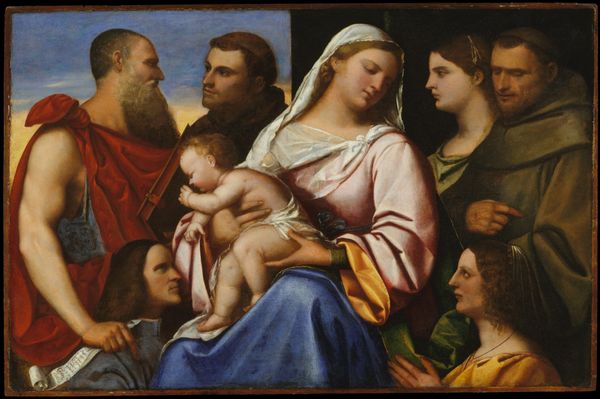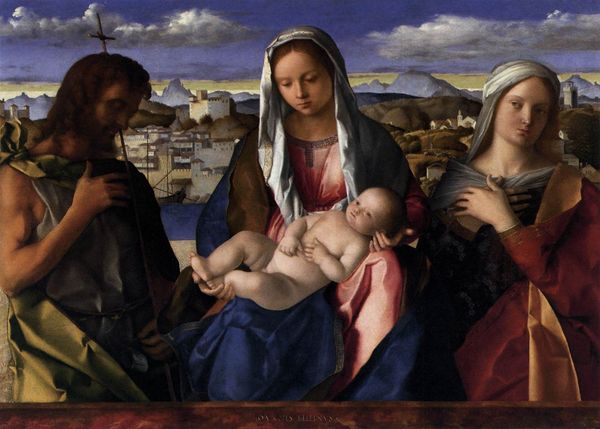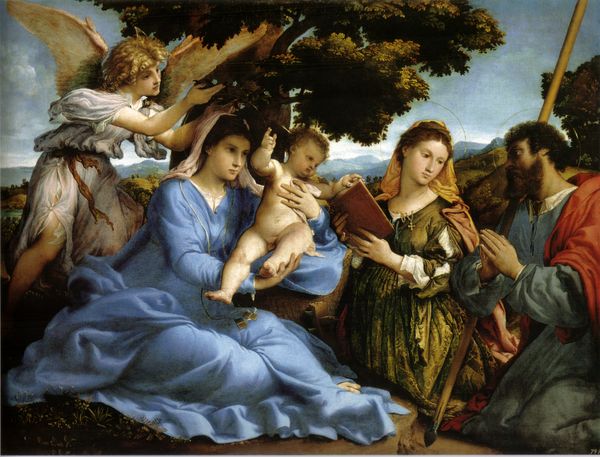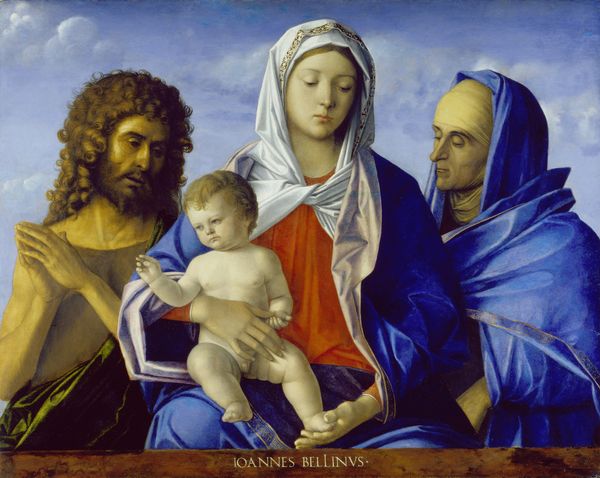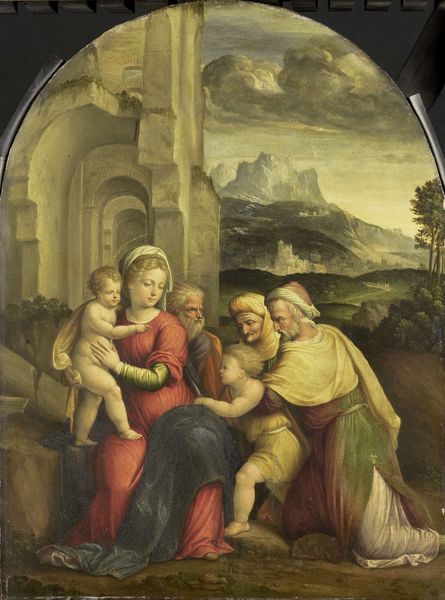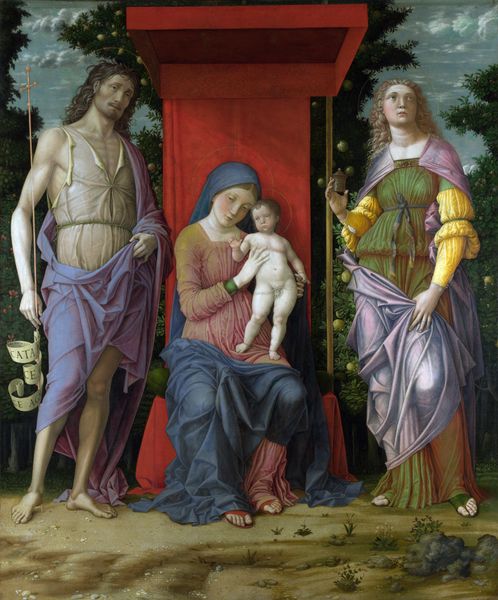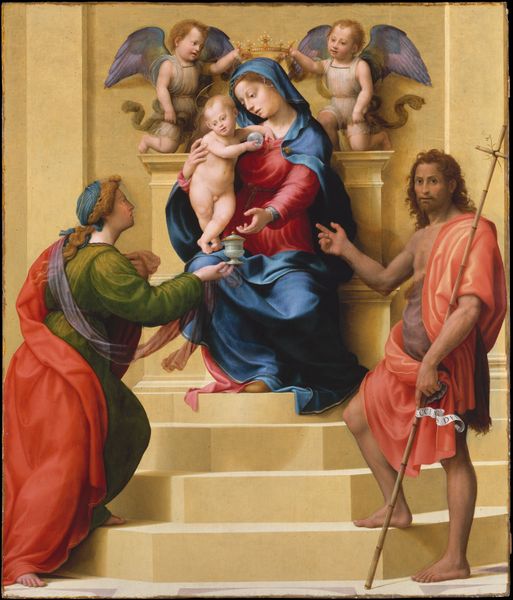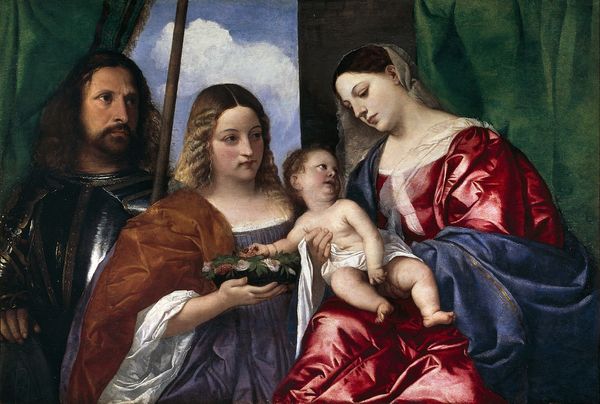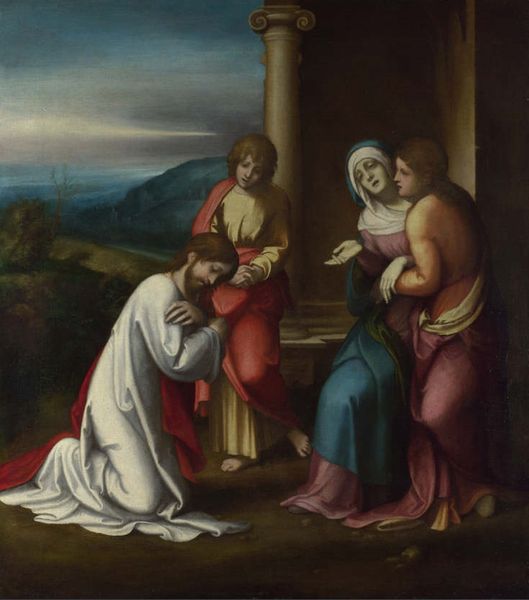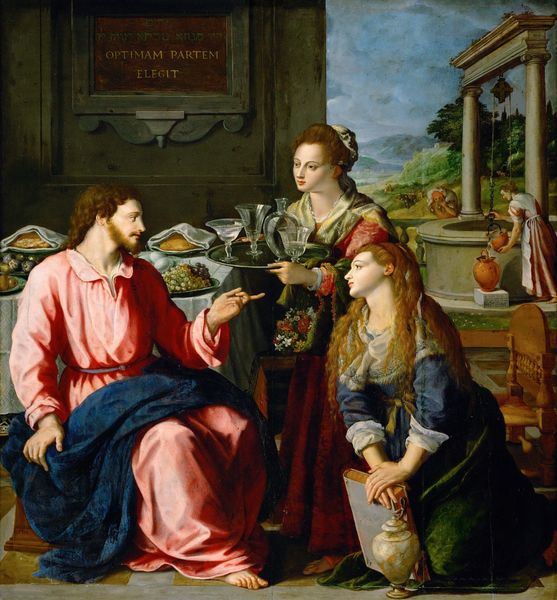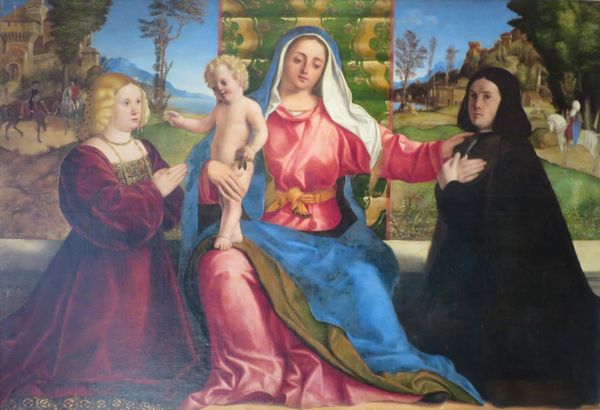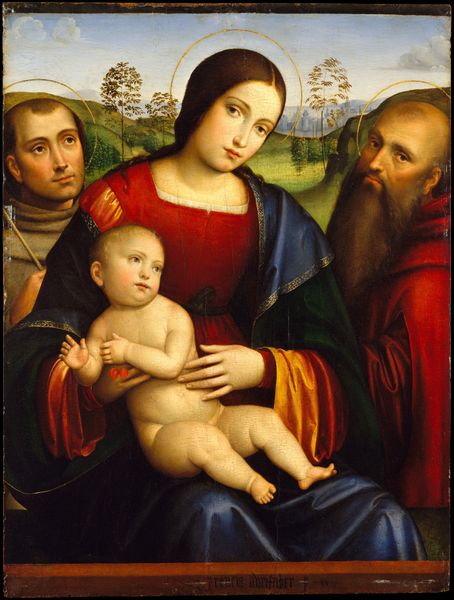
painting, oil-paint
#
portrait
#
venetian-painting
#
painting
#
oil-paint
#
figuration
#
oil painting
#
history-painting
#
italian-renaissance
#
portrait art
Copyright: Public domain
Palma Vecchio made this painting with oil on canvas sometime in the early 16th century. Oil paint involves a fascinating layering of materials and labor. The pigments are ground, mixed with linseed or walnut oil, and then carefully applied to the canvas in thin glazes. The vibrancy of the colours is due to the refractive index of the oil. The ultramarine blues of the Virgin’s robes, for example, would have been made from lapis lazuli, imported all the way from Afghanistan. The red in the garments of Saint Catherine and the Virgin may have been made from the dried bodies of insects like Kermes or Cochineal, reflecting a globalized system of trade. Consider the underdrawing, the preparation of the canvas, and the grinding of the pigments. A painting like this shows the artist's virtuosity, as well as the contributions of many skilled individuals and their own forms of expertise. By considering these production processes, we can appreciate the complex network of skill, labor, and materials that made this Renaissance painting possible.
Comments
No comments
Be the first to comment and join the conversation on the ultimate creative platform.
